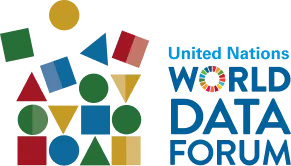
Sustainability Nexus Analytics, Informatics, and Data (AID) Programme
United Nations University
UN Organization, Academia
United Nations University Institute for Integrated Management of Material Fluxes and of Resources (UNU-FLORES) United Nations University Institute for Water, Environment and Health (UNU-INWEH)
Global
The objective of the Sustainability Nexus Analytics, Informatics, and Data (AID) Programme is to advance integrated resource management and sustainable development through a broad Nexus approach. This involves establishing a global hub for Sustainability Nexus Analytics, Informatics, and Data by cataloging existing data, identifying data gaps, and enhancing the capacity to process, analyze, and manage this information. The programme fosters collaboration through an extensive network of interdisciplinary experts from environmental science, policy, economics, and data management, ensuring diverse perspectives are integrated into addressing sustainability challenges. This collaborative network enables knowledge-sharing and best practices, facilitating more informed decision-making. By emphasizing interdisciplinary collaboration and evidence-based approaches, the AID Programme fosters constructive dialogues among scientists, policymakers, and stakeholders, facilitating the integration of nexus thinking into policy and decision-making. Ultimately, this approach enhances the programme's effectiveness in tackling global sustainability issues.
The Sustainability Nexus Analytics, Informatics, and Data (AID) Programme addresses global challenges in managing interconnected resources—water, soil, waste, energy, and geo-resources—through a Nexus approach. Its primary goal is to bridge data gaps, enhance computational capacities, and develop analytical tools to support sustainable management in complex human-environment systems. By providing a state-of-the-art repository of tools for data, informatics, and analytics, the AID Programme helps tackle complex environmental issues such as climate change, pollution, and biodiversity loss.
While machine learning and AI techniques are beginning to reveal complex patterns in large datasets, their application in resource management is still evolving. The programme focuses on creating an up-to-date inventory of tools and resources, empowering governments, scientists, and policymakers to address both regional and international challenges. This problem-driven approach not only addresses critical sustainability issues but also directly contributes to the achievement of the 2030 Sustainable Development Goals (SDGs).
The Sustainability Nexus Analytics, Informatics, and Data (AID) Programme, an initiative of the United Nations University (UNU), is committed to advancing sustainable management of interconnected systems—such as water, soil, waste, energy, and geo-resources—using a broad Nexus approach. Its key activities are structured around three pillars: Nexus Data, Informatics, and Analytics, with a focus on identifying data gaps, improving data exchange, and developing computational tools that support sustainable management in complex systems.
The programme is organized into modules, each targeting specific global or regional challenges, such as droughts, wildfires, and food security. Each module aims to support actors from science, industry, policy, and civil society in tackling major global or regional issues (e.g., drought, wildfires, dust storms, sustainability monitoring and assessment, Nile River conflict/cooperation). Diverse working groups, comprising scientists, professionals, and stakeholders, lead these modules, fostering collaboration across sectors. The ultimate goal of these working groups is to create a comprehensive inventory of state-of-the-art AID tools and resources. These tools and resources empower the global community, working at the interface of science-policy-society, to address significant regional and international challenges through an AID-based Nexus approach.
Recognizing the complexity and interconnectivity of the United Nations Sustainable Development Goals (SDGs), the AID Programme has developed an extensive online platform that serves as a centralized resource hub. Accessible at https://www.sustainabilityaid.net, this platform offers detailed modules on critical sustainability topics, making resources readily available to researchers, policymakers, and practitioners worldwide. Key strategies include fostering global collaboration, promoting knowledge exchange, and developing advanced informatics techniques. The intended outcomes are to fill critical data gaps, enhance the capacity to analyze complex environmental data, and provide cutting-edge tools for effective decision-making. Ultimately, the programme aims to support the achievement of the 2030 Sustainable Development Goals (SDGs) by promoting sustainable development and environmental protection across diverse regions and sectors.
Monitoring progress and evaluating the success of the Sustainability Nexus Analytics, Informatics, and Data (AID) Programme involves a comprehensive approach that includes regular internal evaluations, performance tracking, and expert feedback. Stakeholder engagement is maintained through workshops, conferences, and surveys to gather feedback and assess the relevance of tools and resources, ensuring that the programme effectively addresses global sustainability challenges and aligns with its objectives. In addition, The integration of expertise from 130 researchers across 115 institutes ensures that the modules and tools are based on the latest scientific insights, producing high-quality, reliable content.
